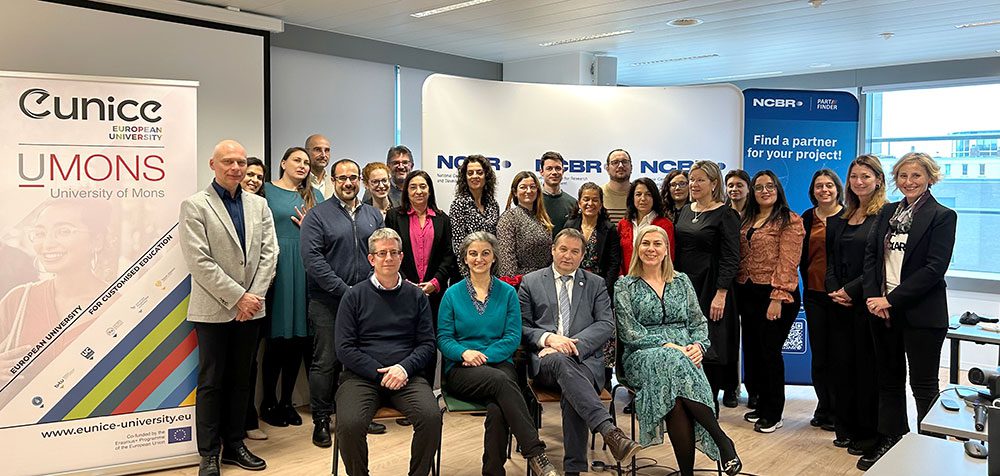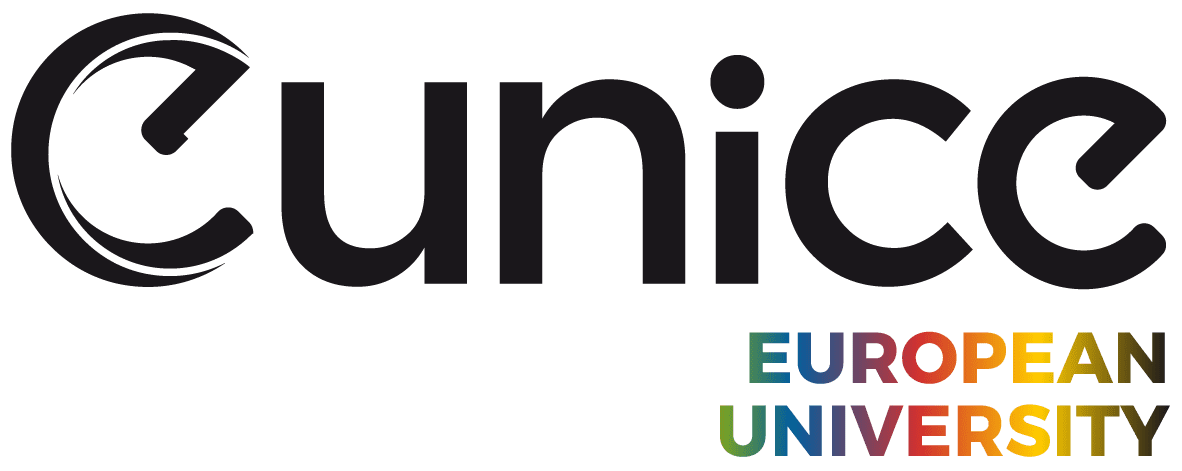The European University plan includes a new line of action focused on students and experiential learning to shape tomorrow’s leaders
EUNICE European University held today in Brussels the kick-off meeting of its second phase spanning from 2023 to 2027. The gathering included representation from the Board of Directors of ten member universities, the recently instated Secretary General, and the project management team, all converging to lay the groundwork for the forthcoming four years of academic evolution.
The aim of the consortium is to offer unique and customised educational pathways to students, fostering interdisciplinary approaches to tackle complex university and societal issues, and to collaborate with local partners to improve regional dynamism. To this end, the 2023-2027 plan unfolds three main lines of action to transform higher education: the development of a joint academic offer and competence portfolio; the promotion of experiential learning and enhanced mobility of students and staff; and bringing the university, business and society closer together through research.
Training
Within the framework of the Academic and Wider Competence Development Offerings work package, EUNICE is already offering a diverse catalogue of language courses and online subjects from its ten member institutions. Currently it is piloting a Certificate in Global Competencies for undergraduates that features in European Diploma Supplement, along with the developing of two official Master’s programmes scheduled for launch in the coming academic years.
Experiential learning
In addition to the cultural activities that have been organised (EUNICE Weeks) and going beyond conventional learning realms this new phase will see the addition of actions that are committed to student involvement, such as student clubs, summer camps, sustainable mobility…

The kick-off meeting was held in Brussels gathering representatives from the Board of Directors of ten member universities, the Secretary General and the project management team.
Research
With the aim of strengthening research ties and in connection with society and business, the consortium has already carried out activities like the Doctoral Summer Course (through h202 REUNICE sister project) or training activities (EUNICE C-Lab) and competitions (EUNICE Imagine Cup) related to entrepreneurship. In addition, EUNICE has a portal announcing international internships in enterprises, but also hosting research internships in EUNICE partner institutions. From this moment, a new focus on research cooperation will be added, for example through PhD thesis co-tutelles, access to scientific-technical services or the setting up of research clubs.
The new EUNICE work proposal until 2027 is funded by the European Commission for more than 14.4 million euros and is based on the values of innovation, sustainability and inclusion.
The European University for CostumisedEducation (EUNICE) was created in 2020 as a transnational alliance with a transformative higher education agenda: the focus remains on creating synergies, connecting European regions, and playing a pivotal role in empowering these regions through collaborative innovation and the development of globally competent professionals poised to drive local growth. Currently ten public universities are part of the consortium: Brandenburg University of Technology Cottbus-Senftenberg (BTU), University of Cantabria (UC), University of Catania (UNICT), Université Polytechnique Hauts-de-France (UPHF), Karlstad University (KAU), University of Mons (UMONS), University of Peloponnese (UOP), Poznan University of Technology (PUT), University of Vaasa (UVA) and Polytechnic Institute of Viseu (IPV).




